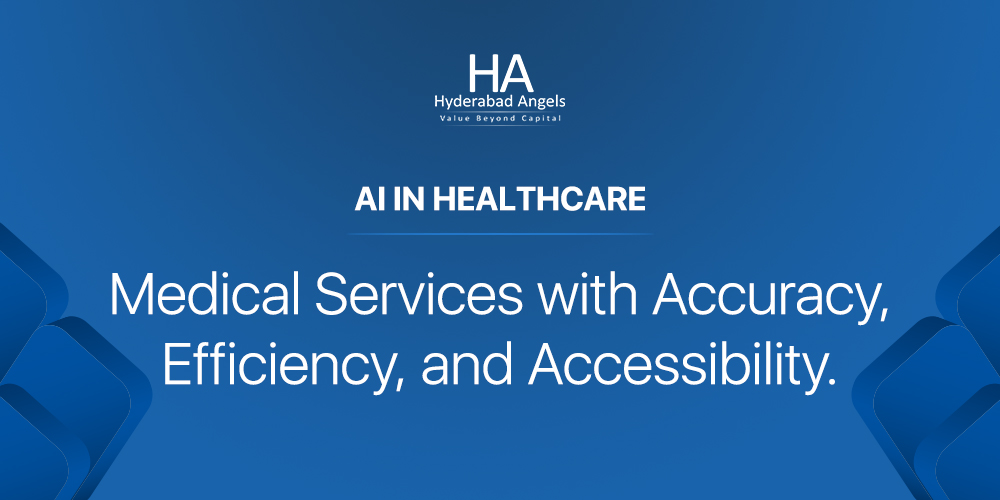Artificial intelligence (AI) is making a significant impact across industries, and healthcare is no exception. With its potential to revolutionize how medical services are delivered, AI is poised to improve the overall healthcare landscape. From faster and more accurate diagnoses to optimizing operations and monitoring patients in real-time, AI is transforming the way healthcare systems operate. This transformation brings three key improvements: enhanced accuracy, increased efficiency, and greater accessibility. In this blog, we’ll dive deeper into these benefits and explore the role of AI in reshaping the future of healthcare.
AI and Faster, Smarter Diagnoses
In healthcare, time is often a critical factor that can mean the difference between life and death. AI is transforming the diagnostic process by enabling faster and smarter analyses of medical data, providing doctors with timely insights for better decision-making.
Traditionally, diagnosing diseases often involves extensive testing, long waiting times, and meticulous analysis of patient data. With AI-powered systems, this process becomes much more efficient. AI algorithms can process vast amounts of medical information, including lab results, medical images, and patient histories, in a matter of seconds. This allows healthcare professionals to access critical information quickly and identify abnormalities or trends that may be missed by the human eye.
For example, AI is already being used to analyze medical imaging like X-rays, MRIs, and CT scans. By learning from vast datasets, AI tools are able to detect patterns and diagnose diseases such as cancer, pneumonia, or fractures with remarkable accuracy. As a result, doctors are equipped with faster insights, which can lead to earlier interventions and better outcomes for patients.
Moreover, AI-driven diagnostic tools are designed to continuously learn and improve over time. With every diagnosis, the systems become more adept at recognizing patterns, ultimately refining their performance and delivering even more accurate results.
Optimizing Healthcare Operations
AI is not only transforming how diagnoses are made but also revolutionizing the operational side of healthcare. Hospitals and healthcare institutions face immense challenges in managing resources efficiently, reducing costs, and ensuring that patients receive timely care. This is where AI steps in as a game-changer.
One of the major ways AI improves healthcare operations is through automation. By automating routine administrative tasks—such as appointment scheduling, billing, and claims processing—AI reduces the burden on hospital staff, allowing them to focus more on patient care. Automation helps streamline workflows and minimizes human error, resulting in significant cost savings for healthcare institutions.
In addition, AI is being used to optimize hospital logistics, such as staffing and equipment management. For instance, predictive AI models can analyze patient data to anticipate surges in demand and ensure that hospitals are adequately staffed during peak times. This not only improves the efficiency of healthcare delivery but also enhances patient satisfaction.
Another application of AI in operations is in drug inventory management. By analyzing historical data and usage patterns, AI can predict the demand for medications and ensure that hospitals maintain optimal stock levels. This reduces the risk of drug shortages or overstocking, further driving cost efficiency in healthcare.
In essence, AI enhances the efficiency of healthcare operations, enabling hospitals and healthcare providers to deliver higher quality care while simultaneously lowering costs.
Continuous Patient Monitoring
One of the most transformative applications of AI in healthcare is its ability to continuously monitor patients and provide real-time alerts to healthcare providers. Traditionally, patient monitoring involved intermittent checks by healthcare professionals, which could lead to delayed responses to critical health issues. AI has the power to change that by providing round-the-clock surveillance of patient health data.
AI-powered monitoring systems are capable of tracking vital signs, detecting abnormalities, and notifying doctors or nurses about potential health risks before they escalate. This is particularly beneficial for patients in critical care units, where early detection of complications is essential for survival.
For example, AI-driven systems can monitor a patient’s heart rate, blood pressure, and oxygen levels in real-time. If an abnormal pattern is detected, the system immediately alerts the medical staff, allowing them to intervene before the patient’s condition worsens. This level of proactive care leads to better outcomes, shorter hospital stays, and fewer complications.
Remote patient monitoring is another area where AI excels. With the rise of telemedicine, AI enables healthcare providers to remotely monitor patients with chronic conditions such as diabetes or heart disease. Patients can wear smart devices that continuously collect and transmit data, which is then analyzed by AI algorithms. This allows doctors to make informed decisions and adjust treatment plans in real-time, improving patient outcomes and reducing the need for frequent hospital visits.
Expanding Access to Healthcare
One of the most profound impacts of AI in healthcare is its potential to increase accessibility to medical services. In many parts of the world, particularly in rural or underserved areas, there is a shortage of healthcare professionals and limited access to specialized care. AI has the ability to bridge this gap by making medical services more accessible to people who might otherwise be left without adequate care.
For instance, AI-powered diagnostic tools can assist healthcare providers in remote locations by providing expert-level analysis of medical images or lab results. This means that even in areas where there are no specialized doctors, patients can receive accurate diagnoses and appropriate treatment recommendations.
Telemedicine platforms, enhanced by AI, allow patients to consult with doctors from the comfort of their own homes. AI can assist in triaging patients by analyzing symptoms and medical histories to determine the urgency of care. This not only reduces the burden on hospitals and clinics but also ensures that patients receive timely care, regardless of their location.
Additionally, AI can help overcome language barriers in healthcare by providing real-time translation services during medical consultations. This ensures that patients from diverse backgrounds can communicate effectively with their healthcare providers, improving the quality of care they receive.
The Future of AI in Healthcare
The integration of AI into healthcare is still in its early stages, but the potential for future advancements is immense. As AI technology continues to evolve, we can expect even more groundbreaking innovations that will further improve the delivery of medical services. From personalized medicine and AI-powered surgical robots to the development of predictive models for disease outbreaks, AI will continue to play a pivotal role in shaping the future of healthcare.
In conclusion, AI’s ability to enhance accuracy, efficiency, and accessibility makes it a vital tool in the ongoing transformation of the healthcare industry. By embracing AI-driven solutions, healthcare providers can deliver better care, improve patient outcomes, and streamline their operations.
Outro: What You Need to Know
Start leveraging AI today to revolutionize healthcare and deliver better patient outcomes. Stay ahead with AI-powered medical innovations and unlock the full potential of technology to enhance the delivery of medical services.
For more blogs click here – hyderabadangels



